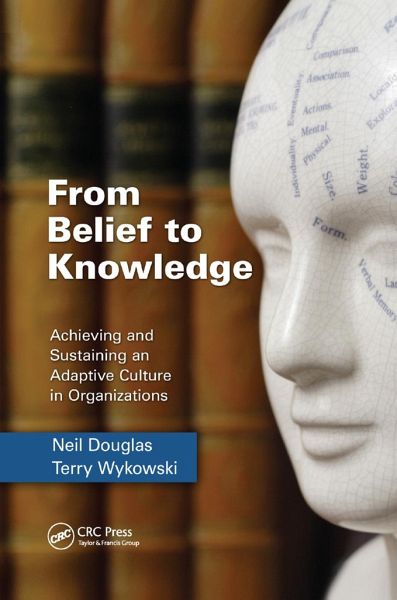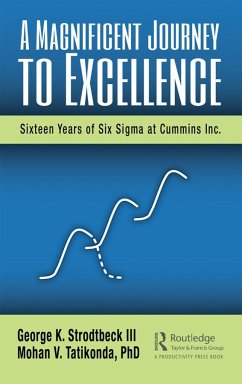
From Belief to Knowledge
Achieving and Sustaining an Adaptive Culture in Organizations
Versandkostenfrei!
Versandfertig in 2-4 Wochen
87,99 €
inkl. MwSt.

PAYBACK Punkte
44 °P sammeln!
Belief is not knowledge, but we tend to hold our beliefs as if they represent knowledge, selecting whatever evidence is required to justify them. And because humans tend to cling to their beliefs as truths, organizations often ignore the need for change, no matter how urgent that need.From Belief to Knowledge: Achieving and Sustaining an Adaptive Culture in Organizations offers potential change agents an integrative analysis and treatment of the problem of organizational learning. It demonstrates the importance of looking beneath beliefs and assumptions to find the roots and persistent influen...
Belief is not knowledge, but we tend to hold our beliefs as if they represent knowledge, selecting whatever evidence is required to justify them. And because humans tend to cling to their beliefs as truths, organizations often ignore the need for change, no matter how urgent that need.
From Belief to Knowledge: Achieving and Sustaining an Adaptive Culture in Organizations offers potential change agents an integrative analysis and treatment of the problem of organizational learning. It demonstrates the importance of looking beneath beliefs and assumptions to find the roots and persistent influences that preserve them. It gives us a much broader definition of organizational knowledge than that associated with information technology and the currently popular idea of knowledge as an asset. Furthermore, it provides an alternative view of culture and change, one that is defined by the ability to continually align collective beliefs with reality.
"Douglas and Wykowski...answer the question that lingers in the minds of many managers What does organizational learning mean and how does it influence ongoing organizational success?"
Lee Newick, Shell Downstream
Rather than offer simple recipes, this book shows how good leaders can evolve and sustain an adaptive culture that develops knowledge through purposeful human interaction. It explores key dynamics of learning, considers the diversity of beliefs present in any group, and demonstrates ways that those leaders can explore and encourage the potential of both the group and individuals within the group.
"Although this book is geared to organizational change, it has the potential to change all areas of human endeavor."
David Julian Hodges, City University of New York
From Belief to Knowledge: Achieving and Sustaining an Adaptive Culture in Organizations offers potential change agents an integrative analysis and treatment of the problem of organizational learning. It demonstrates the importance of looking beneath beliefs and assumptions to find the roots and persistent influences that preserve them. It gives us a much broader definition of organizational knowledge than that associated with information technology and the currently popular idea of knowledge as an asset. Furthermore, it provides an alternative view of culture and change, one that is defined by the ability to continually align collective beliefs with reality.
"Douglas and Wykowski...answer the question that lingers in the minds of many managers What does organizational learning mean and how does it influence ongoing organizational success?"
Lee Newick, Shell Downstream
Rather than offer simple recipes, this book shows how good leaders can evolve and sustain an adaptive culture that develops knowledge through purposeful human interaction. It explores key dynamics of learning, considers the diversity of beliefs present in any group, and demonstrates ways that those leaders can explore and encourage the potential of both the group and individuals within the group.
"Although this book is geared to organizational change, it has the potential to change all areas of human endeavor."
David Julian Hodges, City University of New York












